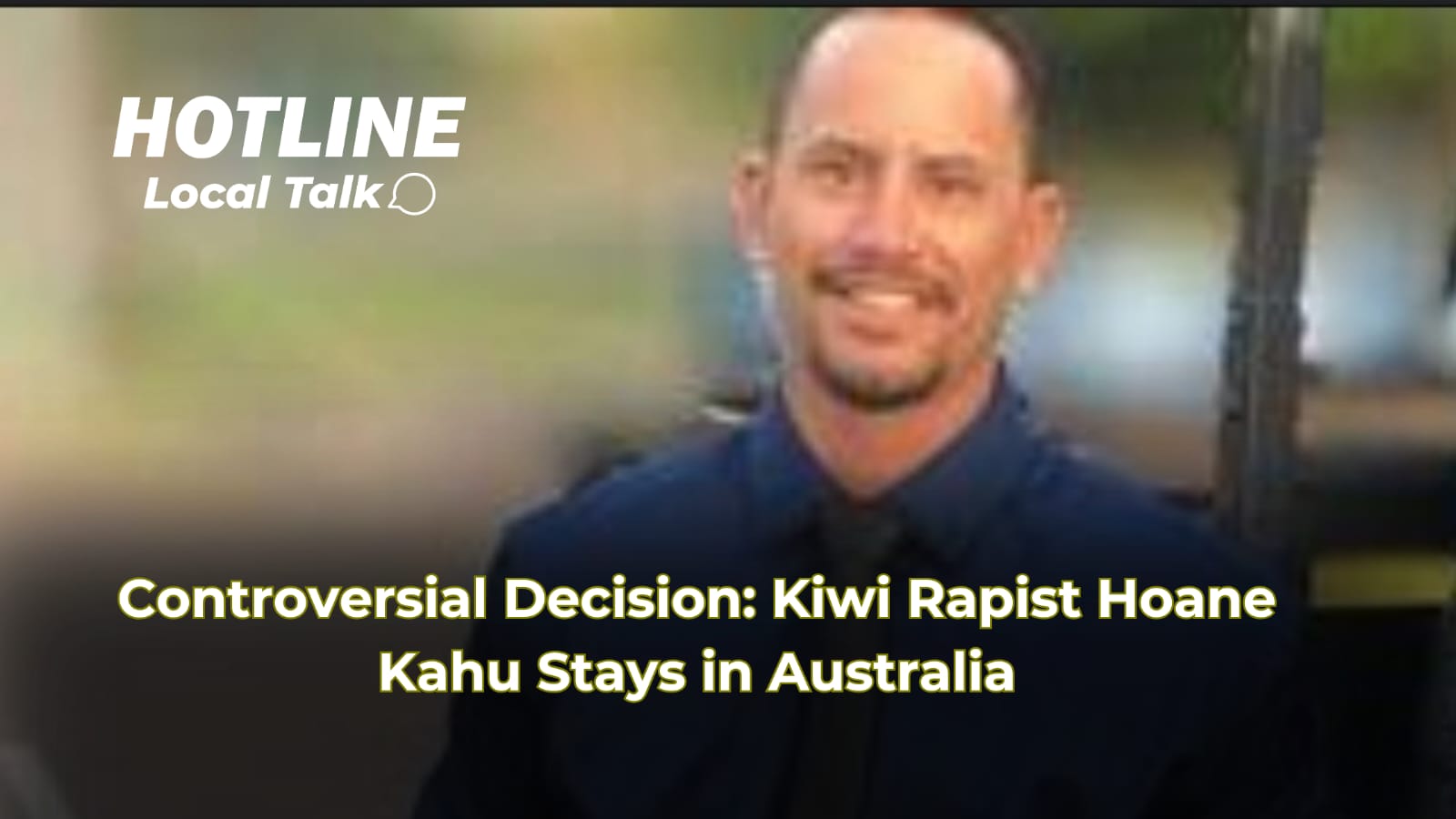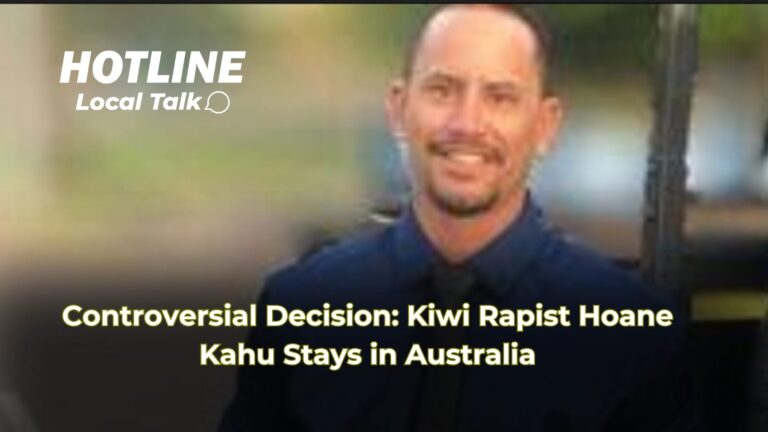Welcome to One Network Wellington Live, where we bring you the latest news from around the globe with a focus on issues that resonate with our Wellington audience. Today, we delve into a case that has sparked much debate across both Australia and New Zealand: the story of Hoane Joseph Kahu, a New Zealand-born individual who has managed to avoid deportation from Australia despite a serious criminal conviction.
Who is Hoane Kahu?
Hoane Joseph Kahu, now in his late 30s, was just 20 years old when he committed a heinous crime in Gladstone, Queensland, in 2005. He was found guilty of raping a 15-year-old girl who was heavily intoxicated at the time. For this crime, Kahu was sentenced to eight-and-a-half years in prison, a sentence that reflected the gravity of his actions.
The Deportation Decision
Under Australia’s section 501 of the Migration Act, non-citizens with substantial criminal records can be deported. However, in a decision that has stirred considerable controversy, the Administrative Review Tribunal of Australia decided to set aside the cancellation of Kahu’s visa. This decision was based on several key factors:
- Long-term Residence: Kahu has lived in Australia since he was four years old, making Australia his home for the majority of his life.
- Family Ties: The tribunal considered the impact of deportation on Kahu’s family, particularly his severely disabled brother and his unwell mother, for whom Kahu has been a primary caregiver.
- Personal Growth: Despite his criminal history, which includes theft, probation breaches, and drug-related offenses, Kahu has shown efforts towards personal rehabilitation and family responsibility.
The Tribunal’s Deliberation
The tribunal described their decision as “finely balanced.” They weighed Kahu’s criminal past against his deep-rooted connections to Australia and his role within his family. According to research from the Australian Institute of Criminology, family support can significantly influence the rehabilitation of offenders, which might have played a role in the tribunal’s considerations.
Public and Legal Reaction
The decision has not been without its critics. Public opinion, especially in forums and social media, has been divided. Some argue that justice for the victim should take precedence, while others empathize with Kahu’s family situation. Legal experts have pointed out that while the law allows for such considerations, the moral implications of allowing a convicted rapist to remain in the country are profound. According to a 2021 survey by the Australian National University, 62% of Australians believe that serious offenders should be deported regardless of their ties to the country.
Impact on New Zealand-Australia Relations
This case also touches on the broader issue of deportation policies between Australia and New Zealand. New Zealand has often expressed concerns over Australia’s deportation practices, particularly when it involves individuals who have spent most of their lives in Australia. The case of Kahu adds another layer to this diplomatic conversation, highlighting the complexities of national identity, legal rights, and international relations.
Looking Forward
As Kahu remains in Australia, the focus now shifts to his future conduct and the ongoing support for his family. The decision sets a precedent that might influence future cases, especially those involving individuals with strong familial and community ties in Australia. For our Wellington audience, this case serves as a reminder of the interconnectedness of our legal systems and the shared community values across the Tasman Sea.
Conclusion
The story of Hoane Kahu is a complex tapestry of crime, punishment, rehabilitation, and family loyalty. While the tribunal’s decision might be controversial, it underscores the nuanced approach sometimes required in legal proceedings. For more updates and in-depth analysis, stay tuned to One Network Wellington Live, where we continue to explore stories that matter to you.
Note: This article aims to provide a balanced view of the situation, respecting the sensitivity of the topic while informing our audience. For further reading or to engage in the discussion, please visit our community forum or contact us directly.
TRUTH SEEKER
Instantly run a Quiz with friends... about the article. Interact more & analise the story. Dig in, catch out biased opinions, and "fact check" with TRUTH SEEKER by ONENETWORK WELLINGTONLIVE 👋
Do you agree with the main argument of this article?
Total votes: 3
When did Hoane Joseph Kahu commit the crime in Gladstone, Queensland?
Bias Analysis
Fact Check Summary
True, as mentioned in the article.
Source: Article
True, according to a 2021 survey by the Australian National University.
Source: Article








